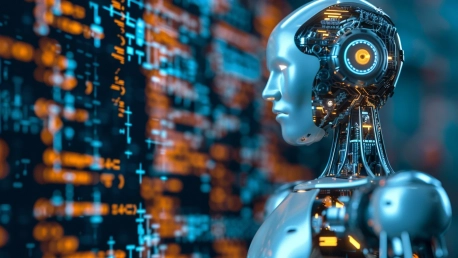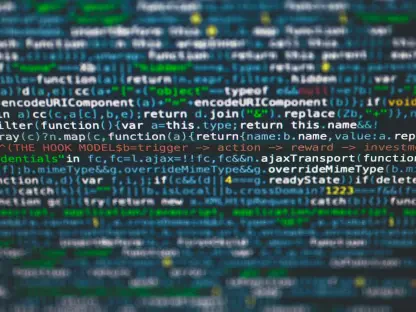The rapid advancements in artificial intelligence (AI) have had transformative implications across various industries, and software development is no exception. Among the AI innovations, OpenAI’s ChatGPT, particularly its GPT-3.5 iteration, stands out for its potential to revolutionize code generation. The discussion centers on the productivity benefits and security risks associated with using ChatGPT in software development, stemming from comprehensive research published in the June 2024 issue of the IEEE Transactions on Software Engineering. This article delves into ChatGPT’s efficacy in improving productivity, its performance accuracy, and the security concerns it presents.
Enhancing Software Development Productivity
Freeing Developers from Repetitive Tasks
A significant advantage of integrating ChatGPT into the software development workflow is its ability to handle routine and repetitive coding tasks. This capability allows developers to devote more time to complex and creative aspects of software development, thereby enhancing overall productivity. By automating mundane tasks, ChatGPT can draft code snippets quickly and efficiently for well-documented problems, freeing human developers from the tedium of writing boilerplate code. For example, developers working with APIs can use ChatGPT to generate standardized request and response handlers, error-checking routines, and other repetitive tasks that would otherwise consume valuable time.Moreover, real-world examples illustrate ChatGPT’s impact on productivity through automation. In corporate environments, ChatGPT has been utilized to draft code templates for CRUD operations (Create, Read, Update, Delete) in database management, which traditionally can be very repetitive. This automation not only speeds up the development process but also minimizes the risk of human error. By leveraging AI for such standardized tasks, teams can allocate their talent to more critical, problem-solving activities, thereby driving innovation and improving software quality.
Performance on Standardized Problems
ChatGPT’s success in generating functional code is markedly higher for well-documented tasks, particularly those available on platforms like LeetCode. The proficiency of the AI in dealing with standardized problems is a key aspect of its utility in software development. Tasks with clear, defined requirements and that have been extensively solved before prove to be ideal for AI-driven code generation. In analyzing its success rates, research shows that ChatGPT excels at solving low and medium difficulty problems. For such tasks, success rates are notably high, with figures reaching up to 89% for low complexity and 71% for medium complexity problems.This exceptional performance for lower difficulty problems can be attributed to the extensive training data encompassing pre-2021 coding problems available on platforms like LeetCode. ChatGPT’s ability to reference this vast repository of solutions allows it to accurately generate code for repetitive and predictable problems. By analyzing patterns and solutions from its training data, ChatGPT effectively produces code snippets that meet the requirements of these well-documented tasks, thus enabling rapid and dependable automation in routine software development activities.
Functional Accuracy and Variance
Old vs. New Problems
One critical insight from the analysis reveals a significant variance in ChatGPT’s proficiency when tackling old versus new coding problems. The AI exhibits high accuracy in resolving problems and tasks posted before 2021, leveraging its training data that only goes up until that year. However, when faced with new or recently introduced issues, ChatGPT’s performance markedly declines. The underlying reason for this disparity lies in the model’s reliance on historical training data. Since it only comprehends examples and patterns it was exposed to during training, its capacity to adapt to novel problems is limited.The gap in performance underscores a fundamental limitation of current AI models like GPT-3.5. While they thrive on familiar datasets, their lack of real-time learning and updates constrains their effectiveness in adapting to new coding paradigms or solving innovative problems that require forward-thinking and novel solutions. This stark difference in handling old versus new problems indicates that while ChatGPT can be a valuable tool for addressing standard issues, developers must remain deeply involved to steer the AI, providing essential context and innovative thinking for newer, unexplored challenges.
Programming Languages and Complexity
ChatGPT’s performance also varies significantly across different programming languages, reflecting variations in code complexity. For instance, code generated in languages like C is often found to be more complex compared to human-written code. This increased complexity may result from the language’s inherent intricacies and the detailed handling of memory and system resources. Conversely, ChatGPT-generated code in C++ and Python tends to align closely with human-written code in terms of complexity and readability, suggesting a better grasp of more modern and higher-level programming languages.When comparing the machine-generated code’s complexity to human-composed code, several patterns emerge. In situations where efficiency and optimization are paramount, AI-generated code often performs exceptionally well, sometimes even surpassing human efficiency. However, this efficiency does sometimes come at the cost of added complexity, requiring skilled developers to parse and refine the code for practical application. Thus, while ChatGPT can generate highly functional and efficient code, its inability to simplify complex logic into more readable and manageable segments can pose challenges, necessitating human intervention to optimize and test the generated solutions comprehensively.
Efficiency Gains and Challenges
Code Efficiency
One of ChatGPT’s remarkable advantages is in optimizing code efficiency. The research highlights that AI-generated code often benefits from reduced execution time and lower memory overhead compared to human-written code. This efficiency gain is particularly notable in areas where performance metrics are crucial, such as high-frequency trading platforms, real-time analysis tools, and large-scale data processing applications. ChatGPT’s ability to quickly iterate and optimize code enables faster and more resource-efficient software executions, providing tangible benefits in speed and responsiveness.Quantifiable metrics further substantiate these efficiency gains. For example, code snippets generated by ChatGPT have been documented to run nearly 50% faster than their human-derived counterparts in certain contexts, with a corresponding reduction in memory usage. Such performance improvements highlight the potential of AI to not only match but occasionally outdo human developers in optimizing software for performance. However, these gains are context-dependent, and the need for rigorous testing and fine-tuning remains critical to ensure that the generated code meets all performance and efficiency criteria.
Dealing with Compilation and Logical Errors
ChatGPT demonstrates a robust capacity for identifying and correcting compile-time errors, significantly easing the development workflow. Its advanced syntax understanding allows it to pinpoint and resolve syntactical issues, which often plague development stages and require iterative debugging. This strength in correcting compile-time errors can expedite the development process, allowing developers to focus on more substantive aspects of coding rather than spending excessive time on debugging syntax-related issues.Nevertheless, ChatGPT’s struggle with logical errors presents a notable challenge. Unlike syntax errors, logical errors are more intricate, arising from misinterpretations of problem requirements or flawed algorithmic logic. The AI’s inability to comprehend contextual nuances and sophisticated problem-solving can lead to functional errors in the generated code. These logical discrepancies necessitate meticulous human review and intervention, reinforcing the indispensable role of developers in steering and refining AI-generated code to ensure it meets the intended functional and operational standards.
Security Concerns in AI-Generated Code
Identified Vulnerabilities
While the benefits of using AI for code generation are evident, security concerns underpin a significant cautionary aspect. Research has identified several common security risks in ChatGPT-generated code, with missing null checks being a prominent example. Such vulnerabilities can pose critical risks, leading to runtime errors, application crashes, or even exploit opportunities for malicious actors. The absence of robust error handling mechanisms may render AI-generated code susceptible to flaws that could compromise the entire software’s security architecture.The severity of these vulnerabilities cannot be understated, particularly in contexts requiring stringent security measures, such as financial systems, healthcare applications, and any software dealing with sensitive user data. However, many of these vulnerabilities are also categorized as easily identifiable and fixable through diligent human review. Thus, while ChatGPT can aid in generating initial drafts of code, the role of skilled developers remains paramount in auditing and fortifying the code against potential security threats, thereby ensuring the robustness and reliability of the software.
Role of Human Oversight
The swift progress in artificial intelligence (AI) has dramatically impacted numerous industries, with software development being a notable example. OpenAI’s ChatGPT, especially its GPT-3.5 model, is particularly groundbreaking for its code generation capabilities. This innovation is transforming the landscape by offering significant productivity improvements alongside notable security concerns. A detailed examination published in the June 2024 issue of the IEEE Transactions on Software Engineering explores these dimensions. The article thoroughly investigates how ChatGPT enhances productivity, assesses its performance accuracy, and highlights the associated security risks. The research underscores the dual-edged nature of integrating AI like ChatGPT into software development. While it accelerates coding tasks and boosts efficiency, it also necessitates a vigilant approach to managing potential vulnerabilities and ensuring robust security measures. This blend of enhancement and risk presents an ongoing challenge for developers aiming to harness AI’s benefits without compromising security standards.









